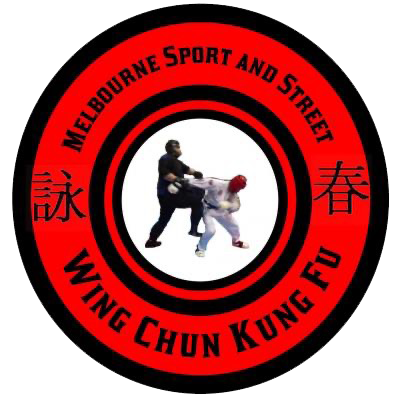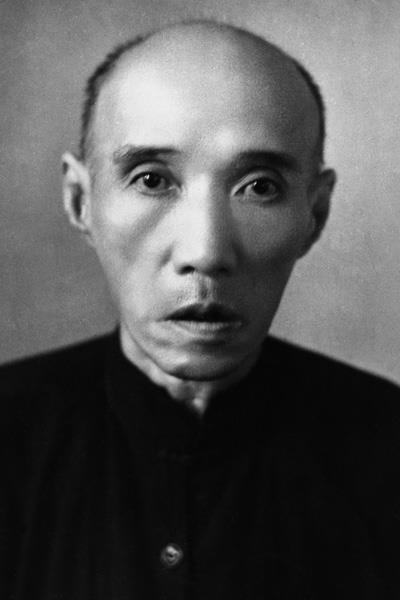Explore the Life and Legacy of Yuen Kay Shan, the Revered Wing Chun Master – Sifu Maurice
Yuen Kay-shan, also known as “Foshan Yuen Lo-jia,” was a legendary Grandmaster of Wing Chun. He was born in Foshan, China, and was the youngest of five brothers. Yuen was famous for being an undefeated champion of 1000 death duels during the 1920s to 1950s. He represented the Wing Chun style.
Early years
Yuen’s family was wealthy, and they owned a firework monopoly. His family ancestral estate home was named Song Yuen (Mulberry Gardens), located in Foshan, China. Initially, Yuen’s father paid for him and his older brother Yuen Chai-wan to become students of Fok Bo-Chuen. He also learned from Wong Wah-bo and “Dai Fa Min” Kam from the Red Boat Opera Company.
Yuen Kay-shan and his older brother Yuen Chai-wan had a deep interest in martial arts. Yuen Chai-wan later became the founder of Yiu Choi and Vietnamese branches of Wing Chun and was known as “Pock Skin Chai.” Yuen’s father, Yuen Chong Ming, provided a large sum of money to Imperial constable Fok Bo Chuen to teach both of the Yuen brothers Wing Chun.
From Fok Bo-chuen, he learned all the extensive open-hand patterns in Wing Chun and structured them into three forms: Siu Lien Tau, Chum Kiu, and Biu Jee. In addition, he mastered the knives, six-and-a-half-point pole, and the flying darts. He also learned the Wooden Dummy, Bamboo Dummy, several different jong variations, and Red Sand Palm.
Martial arts lineage
After mastering the extensive open hand patterns in Wing Chun, Yuen Kay-shan created three forms. They were Siu Lien Tau, Chum Kiu, and Biu Jee, and he also became proficient in knives, the six and a half point pole, flying darts, Wooden Dummy, Bamboo Dummy, and Red Sand Palm. Later, Yuen Kay-shan and his brother invited Fung Siu-Ching, a disciple of Red Boat master Dai Fai Min Kam, to teach them the skills of close body applications, such as kum Na, Fa Kum Na, body wrapping, sweeping, breaking, and throwing. Yuen combined the teachings of his past and present teachers, and he cared for Fung Siu Ching until his death in 1936.
In 1936, Yuen Kay-shan and Yuen Chai-wan went their separate ways. Yuen Chai-wan eventually founded the Nguyễn Tế-Công branch (Vietnam WingChun) branch of the art in Vietnam. He remained in Foshan, where he became friends with other Wing Chun notables like Ip Man, Yiu Choi, Yip Chung Hong, Lai Hip Chi, Tong Gai, and others.
Achievements
Yuen Kay-shan was also an educated man who worked part-time as a lawyer. furthermore he documented the theories, concepts, philosophies, and strategies of the system, making him one of the first Wing Chun masters to do so. He unquestionably is also a significant contributor to luk dim boon gwun and was even challenged by a monk from Jianxi Province. In the Palace of 1000 years longevity, both fighters were armed with iron poles. Yuen Kay-shan disarmed the monk and spared his life, demonstrating not only his skills in kung fu but also his nobility as a martial artist. Yuen Kay-shan never looked for fights but took challenges as learning opportunities. He fought in 1000 death duels and never lost.
The story of Sum Nung, one of Yuen Kay Shan’s disciples, is a testament to the skill and wisdom of the Wing Chun master. Sum Nung initially doubted that he could learn anything from Yuen because he was already proficient in Wing Chun, having learned from Cheung Bo. Yuen challenged him to break an egg while standing in the middle of a circle on the ground. Yuen had placed a raw egg in each his pockets. Despite Sum’s best efforts, he was unable to break the eggs or even push Yuen out of the circle. This demonstration convinced Sum that he had much to learn from Yuen and became his disciple.
Movie controversy
It is worth noting that Yuen Kay Shan’s portrayal in the film caused quite a stir among Wing Chun practitioners and historians. Yuen was portrayed as Ip Man’s younger kung fu brother, implying that he was not as skilled as Ip Man. However, Yuen Kay Shan was a legendary Wing Chun master in his own right and had many disciples who went on to become influential martial artists themselves. Therefore, many members of the Yuen and Yiu families criticized the movie’s portrayal of Yuen and his legacy in interviews.
As a result of the backlash, Sin Kwok-lam, a student of Ip Man’s son and a producer of the movie, apologized. They “served tea” to Yuen Jo Tong, Yuen Kay Shan’s grandson. The apology was a an acknowledgment of the misrepresentation of Yuen’s reputation and status in Wing Chun history. Kwok Si-lam, the movie producer, and co-producer Ip Chun apologized six times for being disrespectful to Yuen, the legendary 1000 death duel champion.
Three Heroes of Wing Chun
The Three Heroes of Wing Chun, a term used to describe the influential masters in the old days of Foshan. They were Yao Choy, Ip Man, and Yuen Kay Shan. According to Yao Wing Ken, Yao Choy’s grandson. These three masters were often mentioned together and considered the leading figures in Wing Chun at the time. Yuen’s disciple, Leung Jan Sing, provided ancestral documents indicating Yuen studied with Fung Siu-ching, while Ip Man studied under Yuen. This record was passed down in the 1970s. Ip Man was not Yuen’s official student, Yuen ranked first in seniority on the family tree, Ip Man being last. Therefore, it would be normal for Ip Man to seek instruction from Yuen Kay Shan.
Top 10 Questions about Yuen Kay Shan
Yuen Kay Shan was a famous Wing Chun Grandmaster who lived from 1889 to 1956 in Foshan, Guangdong, China. He was a disciple of Wing Chun founder, Ng Mui’s student, Leung Jan. Yuen Kay Shan’s background was in the martial arts of the Southern Shaolin Temple and he was well-known for his expertise in the Wing Chun system.
Yuen Kay Shan passed down the Wing Chun system to famous disciples Yip Man and Sum Nung, preserving it. He also added traditional Chinese martial arts elements, making it more versatile and dynamic.
Some of Yuen Kay Shan’s famous students include Yip Man, Yiu Choi, and Sum Nung. He also taught some of his martial arts knowledge to the Hong Kong police force.
The Yuen Kay Shan Wing Chun system stands out as a unique style of Wing Chun. By integrating elements of traditional Chinese martial arts, it becomes more versatile and dynamic. Additionally, its focus on footwork and the concept of “kicking first, then striking” sets it apart from other Wing Chun lineages.
Some of the key principles put an emphasis on “kicking first, then striking”, and the use of circular footwork.
Yuen Kay Shan had a significant impact on the development of Wing Chun in Hong Kong. Notably, he was among the first Wing Chun masters to establish a formal school in the territory. Additionally, he trained some of the most influential Wing Chun practitioners in Hong Kong, such as Yip Man, who would later go on to teach notable students like Bruce Lee..
Although Wing Chun is a popular martial art, preserving the unique character and style of Yuen Kay Shan Wing Chun remains a significant challenge. With many Wing Chun lineages and schools, maintaining the authenticity and integrity of the Yuen Kay Shan system is challenging.
The Yuen Kay Shan Wing Chun system has influenced other martial arts by emphasizing the use of circular footwork, which has been adopted by many other systems. Ultimately it has also been credited with introducing a more dynamic and versatile approach to the traditional Wing Chun system.
Yuen Kay Shan’s legacy in the world of martial arts is significant, as he was one of the most respected and influential Wing Chun masters of his time. He helped to preserve and develop the Wing Chun system. His teachings have been passed down through generations of students.
With its emphasis on footwork and kicking techniques, practitioners of Wing Chun can learn valuable lessons from the Yuen Kay Shan system. Subsequently, the system’s dynamic character and versatility can offer insights into the broader development of martial arts.

